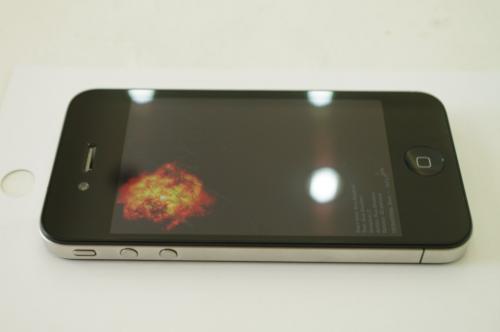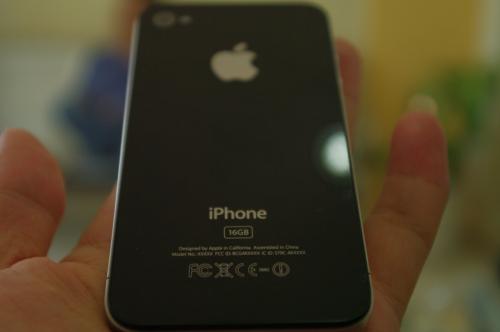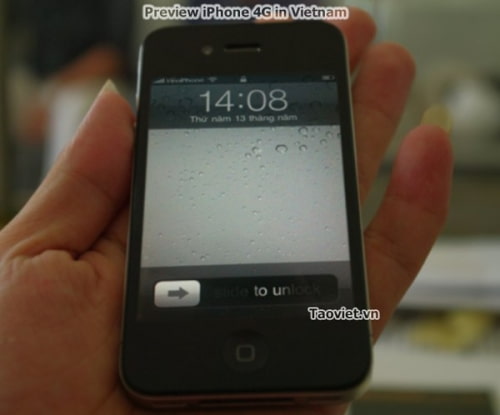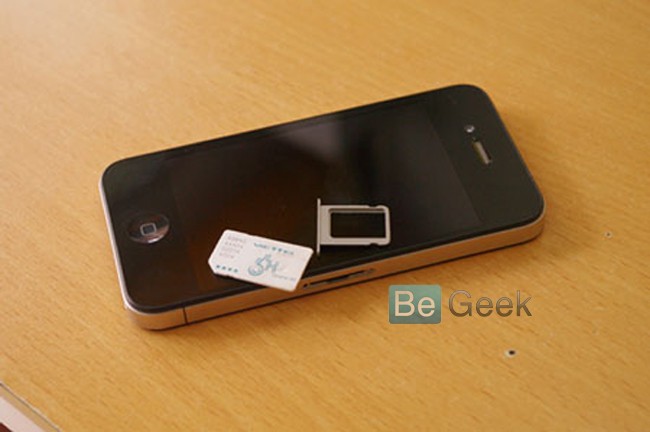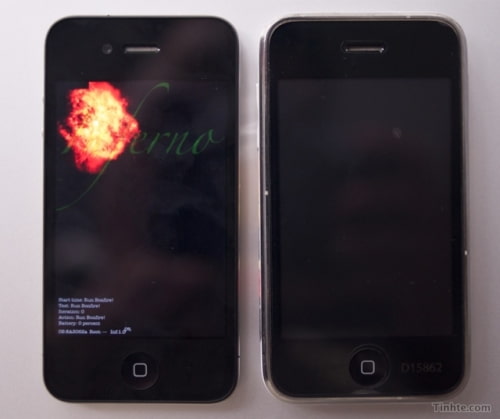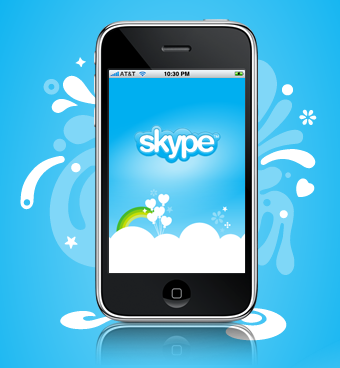AT&T has begun changing its upgrade eligibility dates for some iPhone customers to June 21st, according to a MobileCrunch report.
This morning they received a report from a reader:
"Not sure if anyone [..] has noticed this same thing, but my Upgrade Eligibility date on my AT&T account switched from 11/21 to 6/21 in the last day or so. I bought a 3GS on launch day last year, and my upgrade date read 11/21 since then. A few other folks in my office have noticed the same changes happening to their accounts as well."
It's unclear if this is an unintentional leak or if AT&T is slowly rolling out the changes across their database.
Apple is widely expected to announce and possibly ship the iPhone in June. The company announced previous models at WWDC; although, a rumor earlier this month suggested that Apple has booked June 22nd at the Yerba Buena Center for Arts by the Moscone Center in San Francisco
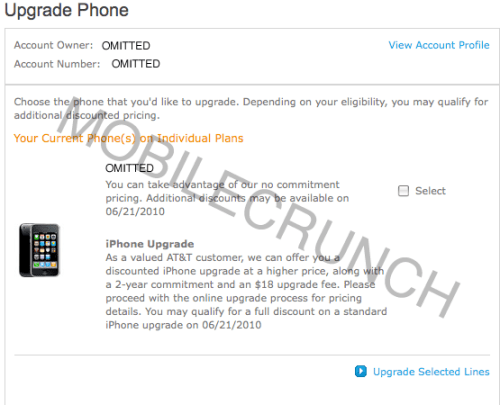
------
Apple plans to release its next generation iPhone - iPhone OS 4.0 in June. The release of iPhone OS 4.0, which includes several features such as multitasking and folder management
However, the launch would not mean much to iPhone 2G users as Steve Jobs has confirmed that iPhone OS 4.0 will not be supported on older models.
Apple's decision to not support these iPhone models stems from the fact that the devices have lower memory and slower processors that may not offer the ideal user experience. However, a group of hackers based in Germany are reported to be working on a project that could bring Apple's latest iPhone firmware to iPhone 2G. According to the project details posted on the team's website, the group of five hackers have been rewriting Apple's 4.0 beta firmware to build a custom firmware that can run seamlessly on iPhone 2G. The team writes:
"To do this we studied the architecture of the firmware previously released by Apple on the device trying to understand how is it different from the released versions on other devices, in particular that of the iPhone 3G device, which is what most resembles the smartphones."
Hackers have made use of the popular jailbreaking software, PwnageTool to install the custom iPhone OS 4.0 firmware on iPhone 2G. The team has already published an image of iPhone 2G running the custom firmware, though we must concede that there is no way to gauge the authenticity of this picture.

Despite the interest surrounding the development, the "Rebuilding OS Group" is not making any promise. In a post on Twitter, William Campbell, one of the lead members of the Berlin based team writes:
"We respond to some users who have criticized the futility of the product, saying that ours is an experiment, we never promised anything. We publish our data to those who wanted to continue the project if they do not succeed."
You can follow the progress of the project on their
website.
------
From the Rumors We Want to Believe Dept., MacDailyNews reported Friday that "Apple is planning to make MobileMe free."
As most iPhone owners know, Apple currently charges $99 per year for the service, which keeps your data (e-mail, contacts, appointments, etc.) in sync between your devices, your PCs, and the Web. MobileMe also provides the potentially invaluable Find My iPhone and Remote Wipe features.
Tempting though all that may be, I've never pulled the trigger on a MobileMe subscription. That's in part because I hate subscriptions in general, and in part because I think $99 is unreasonable. Make it $29 and I'll bite.
Or, better yet, make it free. Could that really happen? At this point the evidence is flimsy at best. MacDailyNews cites only a "tip we cannot confirm," but notes that it has an "air of credibility."
The bigger question: Is this likely to happen? Let's break it down:
The rumor is true because:
-Apple makes so much money from iPhones, apps, and the like (the company reported a $3.37 billion profit for the first quarter of 2010), it can afford to be magnanimous.
-MobileMe hasn't exactly been a runaway success. Offering it for free would likely bring millions of new users to the service, potentially paving the way for Apple to sell other services.
-Speaking of which, Apple recently shut down Lala, the streaming-music service it acquired about six months ago. Perhaps MobileMe will be bundled as part of a new content service that will roll out with iPhone OS 4.
The rumor is false because:
-Apple never gives anything away.
-Current MobileMe subscribers would likely go bananas, having paid their $99.
-The MacDailyNews story includes nothing in the way of credible information. (Truth be told, we debated whether it was even worth reporting.)
-Apple never gives anything away.
------
A Verizon Wireless marketing executive has reportedly been assigned to work full time on a three month, top secret project rumored to be a marketing campaign for a forthcoming iPhone launch.
The new rumor coincides with a report published by CrunchGear earlier today, which claimed Verizon's branding partner, Landor Associates, was busy working on an advertising campaign related to a summer product launch of a Verizon iPhone.
The source of the latest rumor, communicating confidentially with AppleInsider, specifically cited Verizon's "senior vice president of West Coast marketing" as being involved in the secret effort, although Verizon does not have a senior vice president of marketing devoted to the West Coast region. The company's regional marketing is assigned on a director level. Additionally, the executive is described as being a man, while Verizon's current director of West Coast marketing appears to be Kim Cochran, according to public records.
Rumors that won't die
Rumors related to a Verizon iPhone have persisted since before the iPhone was even announced, dating back at least to comments made by Jim Cramer of The Street, who described how a hedge fund manager could seed media sources with false reports to foment the market and then take advantage of wildly fluctuating stock prices that resulted.
"It is very important to spread the rumor that both Verizon and AT&T have decided they don’t like the phone," Cramer said in 2006, just before Apple officially announced the iPhone. "It’s a very easy one to do. You also want to spread the rumor that it’s not going to be ready for Macworld [Expo]. And this is very easy, because the people who write about Apple want that story. And you can claim that it is credible because you spoke to someone at Apple, because Apple isn’t in [a position to comment on unannounced products]. It is an ideal short."
Subsequent reports that Apple's iPhone either was or was not heading to Verizon have resulted in similar dramatic price swings in Apple's stock, distorting the real results of the work that went into actually delivering the phone in the US and globally.
Availability of the iPhone on Verizon's network would likely have a relatively minor affect on Apple's overall sales; the company sold 8.8 million iPhones in the first quarter of 2010, but AT&T only activated 2.7 million phones in the US within that same period. The vast majority of Apple's iPhones are being sold outside the US, which is also where the greatest potential for future growth in the smartphone market is.
While many American users are unhappy with AT&T's level of service in specific markets, particularly in overloaded regions such as San Francisco and New York City, the arrival of a Verizon-compatible iPhone would likely result primarily in a shift of users from AT&T to Verizon, rather than sparking a large number of new iPhone sales. Verizon has a smaller concentration of smartphone users than AT&T does.
Few clues from Apple
Apple has remained silent on the potential for a CDMA-only, 4G LTE, or hybrid version of the iPhone which could be sold on both AT&T and CDMA providers such as Verizon or Sprint, with company executives only ever praising AT&T as a valued partner in the US. In other global markets, Apple has readily opened up its exclusive service contracts to make the iPhone available from multiple, competitive mobile providers, but those markets are not split by the UMTS/CDMA technical divide that suppresses mobile phone competition in the US.
Verizon and Sprint deployed a large number of BlackBerry and Android-based CDMA smartphones in the US, often using aggressive "buy one get one free" programs which helped Android as a platform to surpass Apple's first calendar quarter of iPhone sales in the US, according to data from NPD. However, Apple continued to outsell all Android vendors globally and remains a stronger, less fractionalized installed base for app developers in the US. Apple has also maintained stronger average selling prices than its competitors, including smartphone leader Nokia.
If Apple chose to deliver a version of the iPhone capable of working on Verizon's network, it is possible it could eat up a significant chunk of the sales of competing smartphone platforms, which currently are isolated from direct competition with the iPhone due to the network technology barrier that currently prevents the iPhone from working on Verizon and Sprint. However, Apple would likely also lose significant leverage in driving concessions from AT&T, such as the low iPad 3G pricing deals for unlimited data that the company has not been able to establish in many other markets outside the US, as well as hardware pricing leverage.
 Last time on let's-speculate-about-Apple-products, the New iPhone rumor mill dug up dirt on video chat and a 5 megapixel camera. Now, it appears there might be one more reason to call it the iPhone HD. MacRumors reports that the iPhone SDK 4 beta includes the value "AVCaptureSessionPreset1280x720," leading some to believe Cupertino's next phone will record video in 720p. Mind you, the iPhone 3GS was technically already capable of that feat, so this might not have anything to do with a new handset, but honestly, at this point the iPhone's camera wouldn't be competitive recording in a smaller format anyhow.
Last time on let's-speculate-about-Apple-products, the New iPhone rumor mill dug up dirt on video chat and a 5 megapixel camera. Now, it appears there might be one more reason to call it the iPhone HD. MacRumors reports that the iPhone SDK 4 beta includes the value "AVCaptureSessionPreset1280x720," leading some to believe Cupertino's next phone will record video in 720p. Mind you, the iPhone 3GS was technically already capable of that feat, so this might not have anything to do with a new handset, but honestly, at this point the iPhone's camera wouldn't be competitive recording in a smaller format anyhow.


